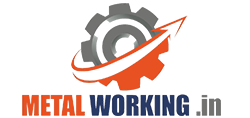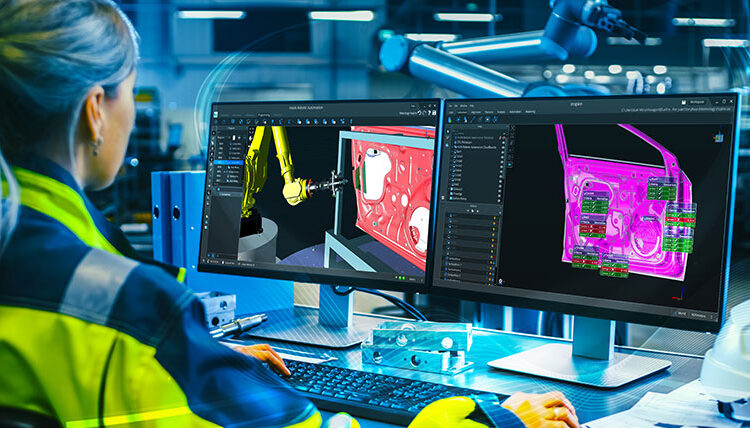Hexagon unveils platform to accelerate autonomous quality assurance for Industry 4.0
Open robotic control software platform enables non-specialists to code and control any industrial robot to democratise industrial automation
Hexagon’s Manufacturing Intelligence division, which supplies smart manufacturing technologies to giants from Volkswagen to Boeing, has unveiled HxGN Robotic Automation, pioneering robotic programming and control software that enables non-specialist quality professionals to program industrial robots to perform a fully automated quality inspection.
The platform enables manufacturers to equip greenfield factories or retrofit existing production lines with state-of-the-art autonomous optical inspection cells, accelerating time to market by eliminating historic bottlenecks while providing more complete data directly from the production line as products are made.
HxGN Robotic Automation enables manufacturers to accelerate the adoption of Industry 4.0 by intelligently devising optimal inspection routines in a single step; a task that would typically demand significant time and attention from both metrology and robotics professionals. With HxGN Robotic Automation, manufacturers can now develop the program offline, away from the production line in a digital reality, and deploy a robust program to the robotic cell. The software is already used by market leaders such as ŠKODA AUTO to enhance their manufacturing production lines.
Martin Jehlička, Chief of Measurement Centre at ŠKODA AUTO, said “We have reduced the time required to program robotic inspection from several days to just four hours using the new software, so we can be ready and waiting to inspect a new vehicle as soon as we want to begin production. Robotic automation and Hexagon’s high-speed laser scanning systems have already halved the inspection time for parts and sub-assemblies, and installing these automated inspection cells on the production line is fundamental to our Industry 4.0 strategy of making data available and actionable so quality trends can be identified quickly, or in some cases automatically corrected.”
Built on open design principles, the software interfaces with any new or existing industrial robots and is flexible so that quality professionals can employ the most appropriate metrology sensors to help rapidly future-proof factories with real-time, inline metrology. By enabling real-time measurement data to be automatically captured at source and used to optimize production in real-time, the technology embeds quality assurance in the heart of production to enable faster, self-correcting manufacturing and free up staff time for other tasks, such as data analysis.
The technology allows qualified professionals to multiply their efforts in improving quality assurance across a manufacturing line, driving consistent quality, and consolidating metrology data throughout manufacturing lines. Robust offline programming makes it possible to repurpose or hone metrology cells with minimal production downtime, maintaining more agile manufacturing operations and enabling new cell-based manufacturing models that are based on achieving product customization and speed without sacrificing the efficiencies associated with volume production.
With the growing demand for vertical integration to consolidate quality control across diverse supply lines, the new software can work with everything from small to extra-large part sizes and from simple single fixed robot cells to complex cells with multiple sensors and robots on rails and tables.
The resulting metrology data will also help improve design simulations by enabling manufacturers to predict the as-manufactured performance of products at the design stage, for example by anticipating residual stresses that could be caused during casting. Rich, real-time, in-line metrology data could fuel future machine learning systems to optimize designs, parts, and production processes and create increasingly autonomous self-correcting production lines.
Stephen Graham, President of Metrology and Production Software at Hexagon’s Manufacturing Intelligence division, said: “Automating inspection is vital to enable OEMs to consolidate quality across increasingly diverse, complex products and processes. Truly smart manufacturing needs swift, accurate and accessible measurement data, but many robotic inspection systems are costly, complex, closed systems that are incompatible with the manufacturer’s chosen tools and inaccessible to non-specialists. HxGN Robotic Automation is built around openness so that manufacturers can swiftly and seamlessly future-proof entire manufacturing lines for robotic inspection.”
HxGN Robotic Automation supports Hexagon laser trackers, Leica T-Scan, and AS1 scanners and directly interfaces with FANUC and KUKA robots while built-in postprocessors enable the robot controller to work with a wide range of third-party robots. Future versions will support the HxGN SLS Structured Light Scanner and third-party sensors.
This content was originally published on the Hexagon MI website.

